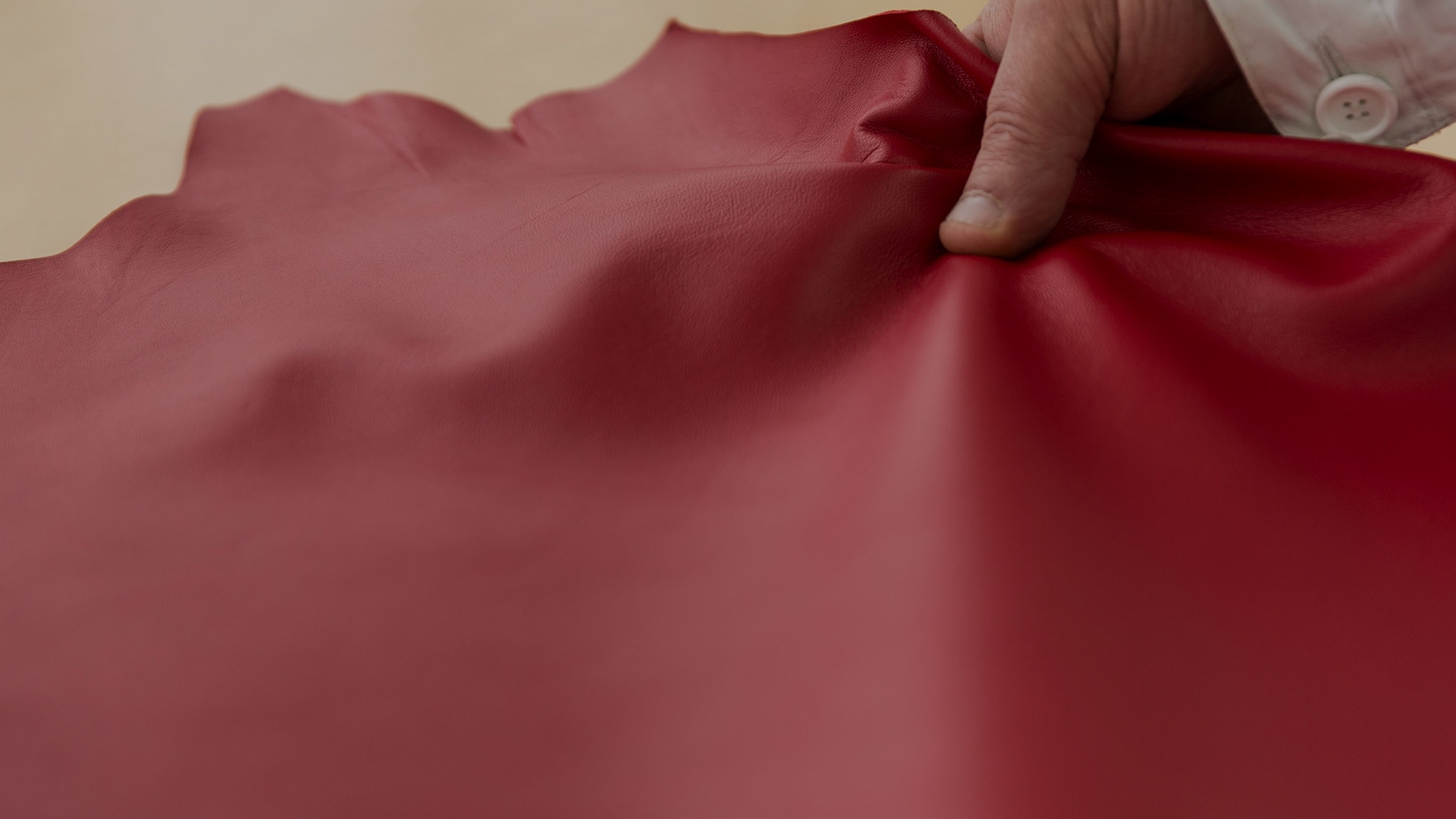HIGHLIGHTS
Purpose and Values


Protecting the environment and its biodiversity is a fundamental element of Prada Group’s growth strategy, contributing to the future availability of the resource itself and consolidating the robustness and resilience of its supply chain. As such, addressing the potential impact of raw material sourcing from the design phase onwards is a key focus for the Group.
Prada Group is committed to sourcing and managing raw materials with a comprehensive approach that emphasizes not only the intrinsic value and high quality of the materials used, but also their origin and the ethical and sustainable manufacturing processes they undergo
Materials purchased for finished products in 2024
The Group has reinforced its responsible sourcing also through the implementation of an Animal Welfare Policy.
To learn more about our targets, download Prada Group's Sustainability Report 2024.
LEATHER
2022 baseline
2024
2026 target year


Leather is one of the most important raw materials, accounting for 43% of the materials purchased in 2024 for finished products by Prada Group, which is committed to sourcing the highest quality leather in compliance with the standards and certifications set out in its Restricted Substances List (RSL).
The Group is also working to improve the traceability of its leather supply chain, with the aim of gathering comprehensive information on the entire process, from farm to finished product.
The Group recognizes that the processing phases of leather involve significant water consumption, chemical use and a potential risk of human rights violations, and that information on the origin of hides and skins is also crucial to the preservation of biodiversity and the elimination of the risk of deforestation.
↑ top
NYLON AND POLYESTER
2022 baseline
2024
2026 target year


Prada Group offers its clients a significant range of products made of alternatives to nature-based materials. In 2024, nylon and polyester accounted for 14% of the Group's total procurement, with a transition to a recycled offer over the years.
The Group was a pioneer in the use of recycled synthetic materials launching in 2019 Prada Re-Nylon Collection, made entirely from nylon regenerated by recycling plastics collected worldwide from landfills, textile fiber waste and the ocean.
In 2024, Prada also signed the Microfibre 2030 Commitment.
↑ top
COTTON
2022 baseline
2024
2026 target year


Cotton is the Group’s main natural raw material, accounting for almost 12% of total purchases in 2024. The Group relies on certifications to mitigate potential negative impacts associated with cotton sourcing, with 45% of its cotton purchases having at least one of the following certification: GOTS, OCS, BCI or GRS.
↑ top
VISCOSE
2022 baseline
2024
2026 target year


Manmade cellulosic materials can have significant environmental impacts due to the intensive chemical processes involved in their production, such as the use of solvents and bleaching agents. In addition, viscose production is closely linked to deforestation due to the extraction of wood pulp from trees, mainly hardwood and softwood species, which are cleared for cellulose production. This process leads to habitat loss and biodiversity degradation. To address these negative impacts, the Group has set a target to achieve 100% FSC-certified or recycled viscose by 2026.
↑ top
